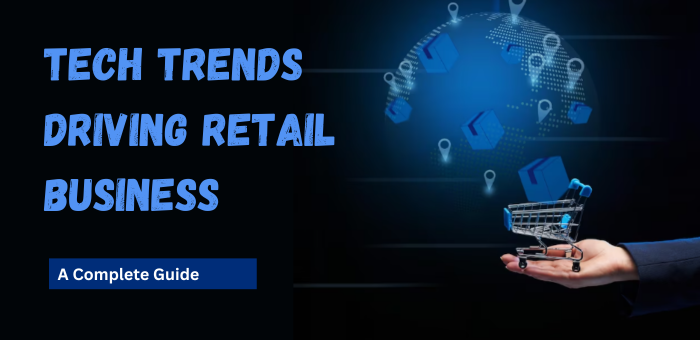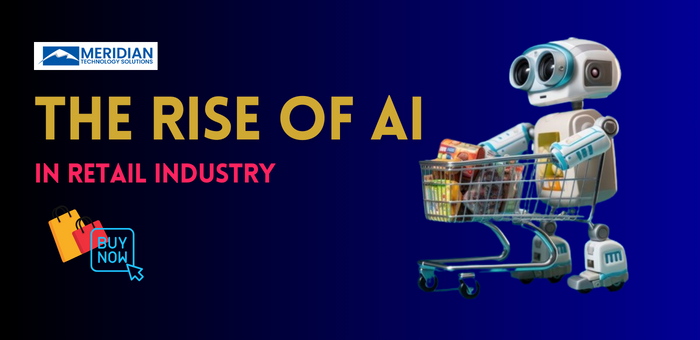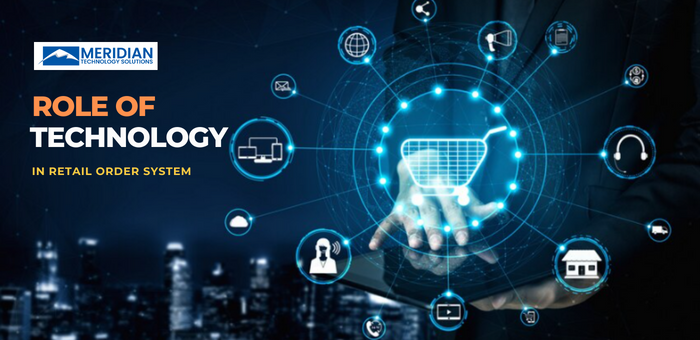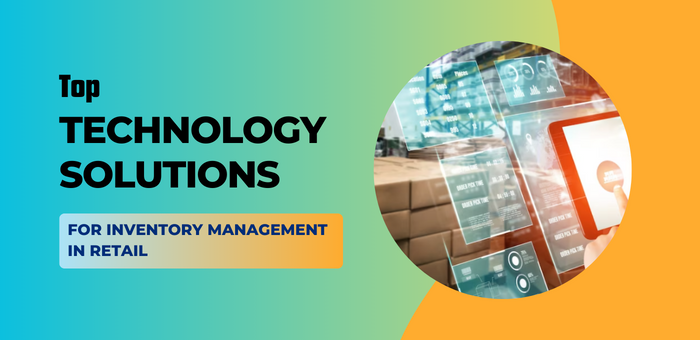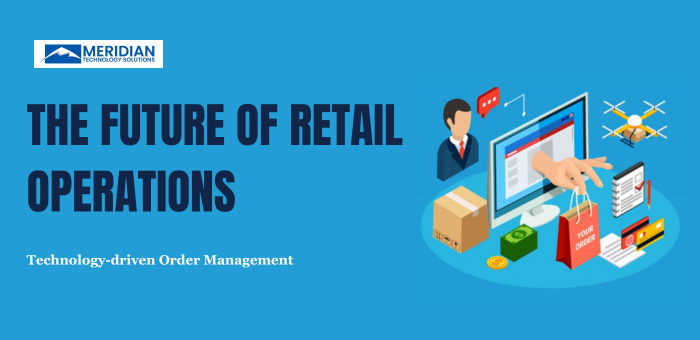Tech Trends Driving Retail Business – A Complete Guide
Driven by cutting-edge technology, the retail market has changed dramatically in the last 5-10 years. To stay competitive and work according to the consumer needs, it is crucial to adopt the latest technologies and implement their trends in the day-to-day operations.
Nowadays, consumers demand personalized and seamless experiences. This can be catered by using evolving tech trends. Technologies such as artificial intelligence (AI) and augmented reality (AR) are meeting this demand, enabling retailers to create immersive, customized journeys that drive customer loyalty E-commerce and increasingly highlights once again the importance of adapting to digital trends, and embracing virtual shopping.
In addition to customer-focused benefits, technological advances play an important role in increasing operational efficiency. Automation and robotics powered by the Internet of Things (IoT) simplify inventory management and ordering, reduce errors, and improve supply chain quality. Differentiation is essential to success in crowded marketplace, and technological advances create unique selling points that set businesses apart from competitors.
Moreover, staying attuned to changing consumer behavior is critical, and data analytics driven by machine learning algorithms provide valuable insights. This adaptability is essential for making informed decisions, tailoring marketing strategies, and adjusting inventory to align with evolving demands.
Embracing tech trends is not just about meeting the current needs but future-proofing the business, ensuring that retailers are well-positioned to navigate the ever-evolving world of commerce. Ultimately, it is a strategic imperative for businesses to view technology not as an accessory but as a fundamental driver of success in the retail industry.
Let’s explore the key technological advancements propelling the retail industry forward.
E-Commerce Evolution
E-commerce has become the cornerstone of modern retail, enabling businesses to reach global audiences.
It is estimated that nearly 2.71 Billion people are expected to shop online in 2024, up from 2.37 Billion people in 2020. With user-friendly interfaces and secure payment gateways, online shopping has grown exponentially.
Now, retailers are investing in seamless mobile experiences, optimizing websites for faster loading, and incorporating augmented reality (AR) to enhance the virtual shopping experience.
Artificial Intelligence (AI) Integration
AI is revolutionizing the retail sector by enhancing personalization and customer interactions. The global AI in retail business is predicted to advance at a CAGR of 30.3% and reach a valuation of US$ 85 Billion by 2033, up from US$ 6 Billion in 2023.
Chatbots, powered by AI, provide instant customer support, guiding users through the purchase process. AI algorithms analyze customer behavior to offer personalized recommendations, improving user satisfaction and driving sales.
Augmented Reality (AR) and Virtual Reality (VR)
AR and VR technologies are reshaping the way consumers engage with products. Virtual try-ons, where customers can visualize products in real-world settings, reduce return rates and boost confidence in online purchases. Retailers are also exploring VR for immersive shopping experiences, creating virtual stores that customers can explore from the comfort of their homes.
Contactless Payments and Digital Wallets
The COVID-19 pandemic accelerated the adoption of contactless payments, with consumers valuing the convenience and hygiene they offer. Digital wallets, integrated with mobile apps, allow for quick and secure transactions. Retailers are adapting by implementing NFC technology and QR codes, creating a frictionless payment experience for customers.
Internet of Things (IoT) in Retail
IoT devices are enhancing in-store experiences by providing real-time data on inventory, customer preferences, and store conditions. Smart shelves equipped with RFID tags monitor product availability, preventing stockouts and optimizing inventory management. IoT-enabled beacons send personalized promotions to customers’ smartphones, driving targeted marketing efforts.
Blockchain for Supply Chain Transparency
Blockchain technology is revolutionizing supply chain management, providing transparency and traceability. Retailers are leveraging blockchain to authenticate product origins, ensuring the authenticity of luxury goods and preventing counterfeiting. This technology also enhances inventory management, reducing errors and increasing overall efficiency.
Data Analytics for Informed Decision-Making
Data analytics plays a pivotal role in helping retailers make informed decisions. Advanced analytics tools analyze vast datasets, providing insights into consumer behavior, market trends, and inventory management. Retailers can optimize pricing strategies, personalize marketing campaigns, and streamline operations based on data-driven intelligence.
Personalized Marketing with Machine Learning
Machine learning algorithms analyze customer data to create highly targeted marketing campaigns. Personalized recommendations, tailored promotions, and individualized content enhance the customer experience. By understanding customer preferences and behavior, retailers can foster brand loyalty and increase customer retention.
Social Commerce Integration
The intersection of social media and e-commerce is driving the rise of social commerce. Platforms like Instagram and Facebook offer seamless shopping experiences directly within their apps. Retailers are leveraging influencers and user-generated content to promote products, creating a more interactive and engaging shopping environment.
Robotics and Automation in Fulfillment Centers
Automation and robotics streamline warehouse operations, reducing fulfillment times and improving order accuracy. Automated guided vehicles (AGVs) and robotic arms handle tasks like picking, packing, and sorting, allowing human workers to focus on more complex tasks. This results in faster order processing and enhanced operational efficiency.
In conclusion, staying ahead in the retail industry requires a proactive approach to technology adoption. E-commerce evolution, AI integration, AR and VR experiences, contactless payments, IoT in retail, blockchain for supply chain transparency, data analytics, machine learning, social commerce, and robotics are the key drivers shaping the future of retail.
Technologies assist retailers to create a seamless omni-channel experience, optimize operations, and provide personalized, engaging interactions with customers. The retail revolution is underway, and those who adapt and leverage these tech trends will thrive in the dynamic and ever-evolving landscape of modern commerce.
To know more, talk to us.

